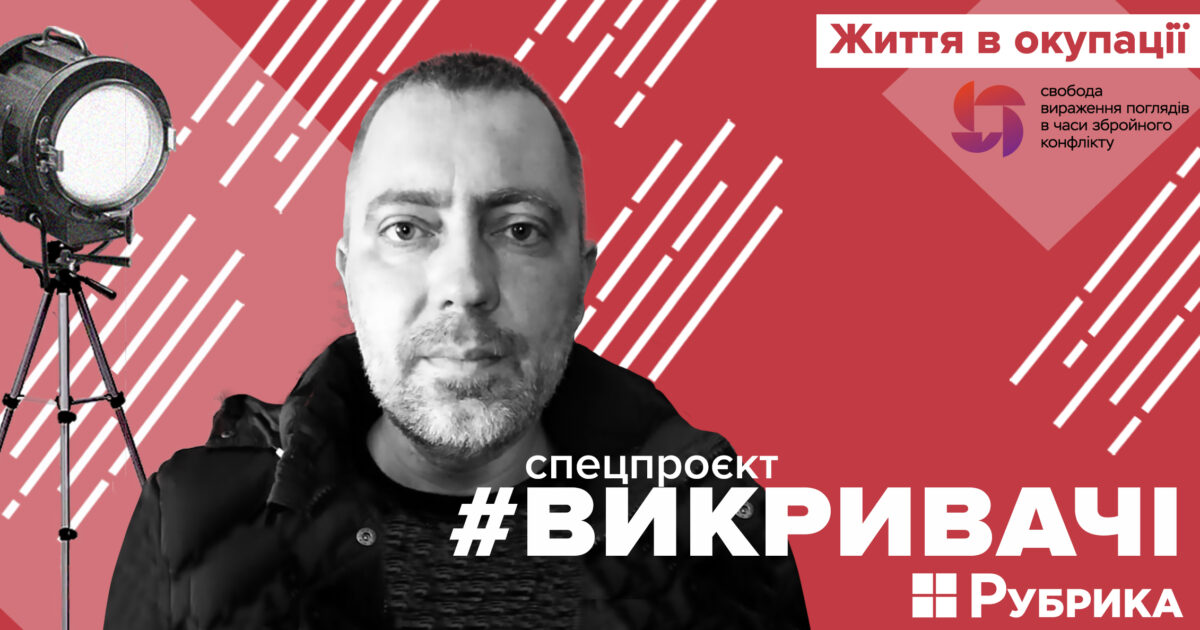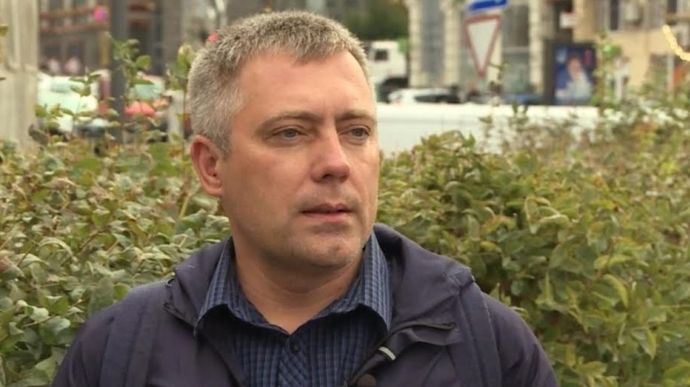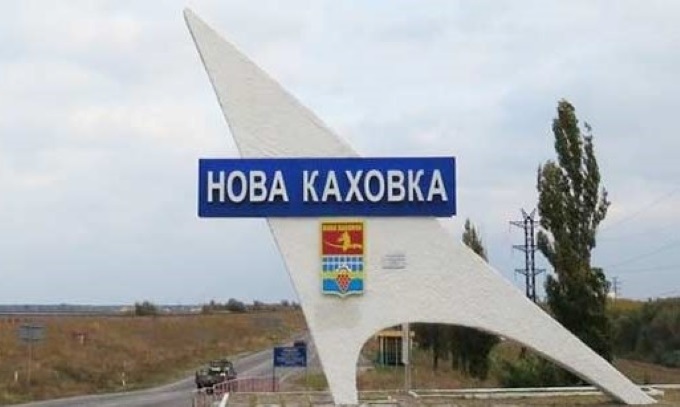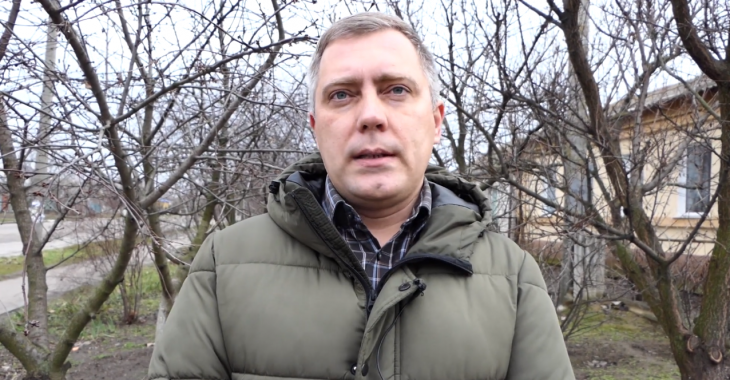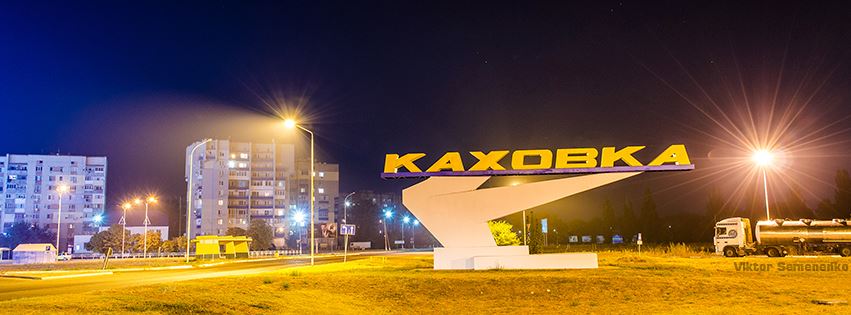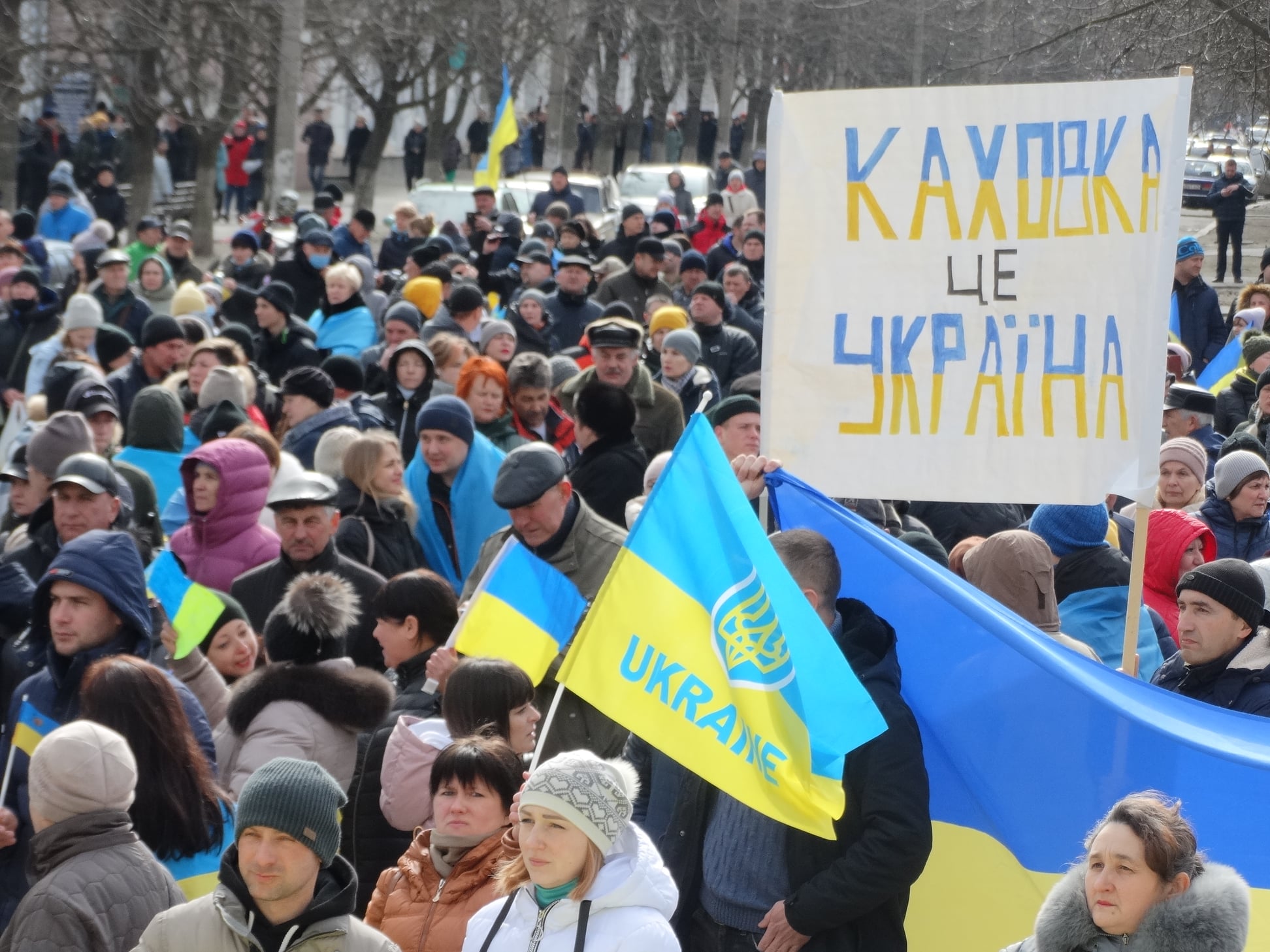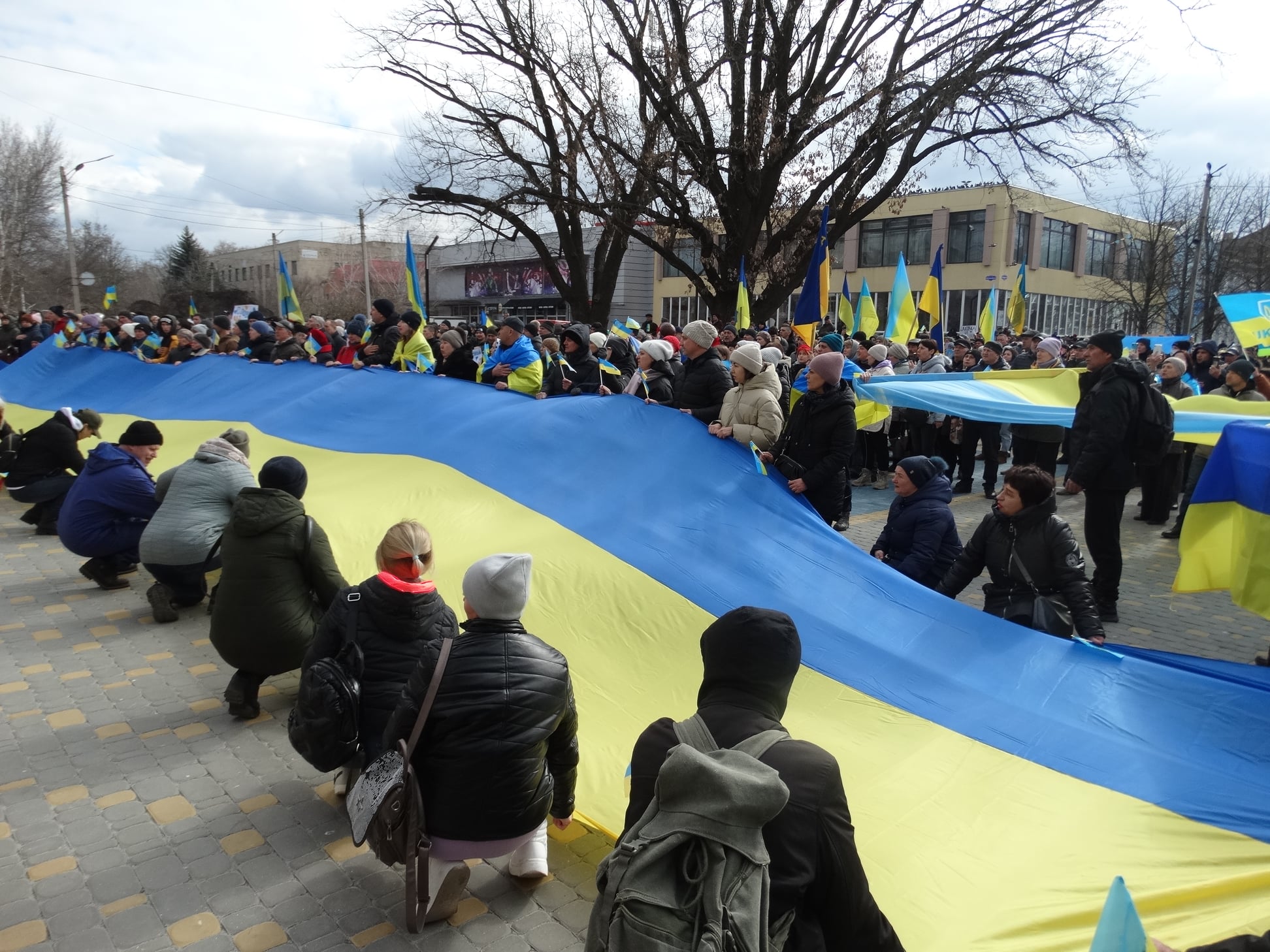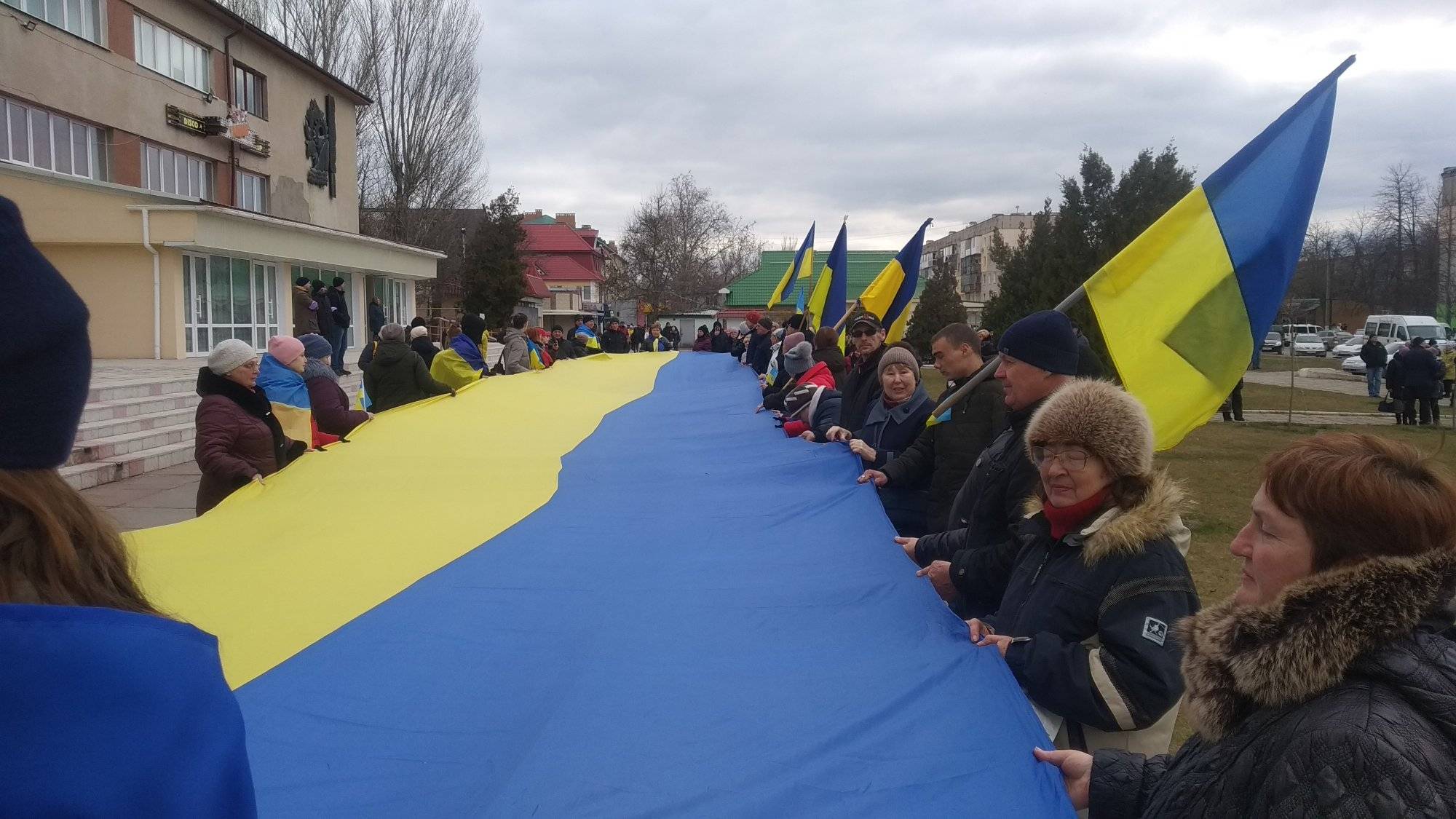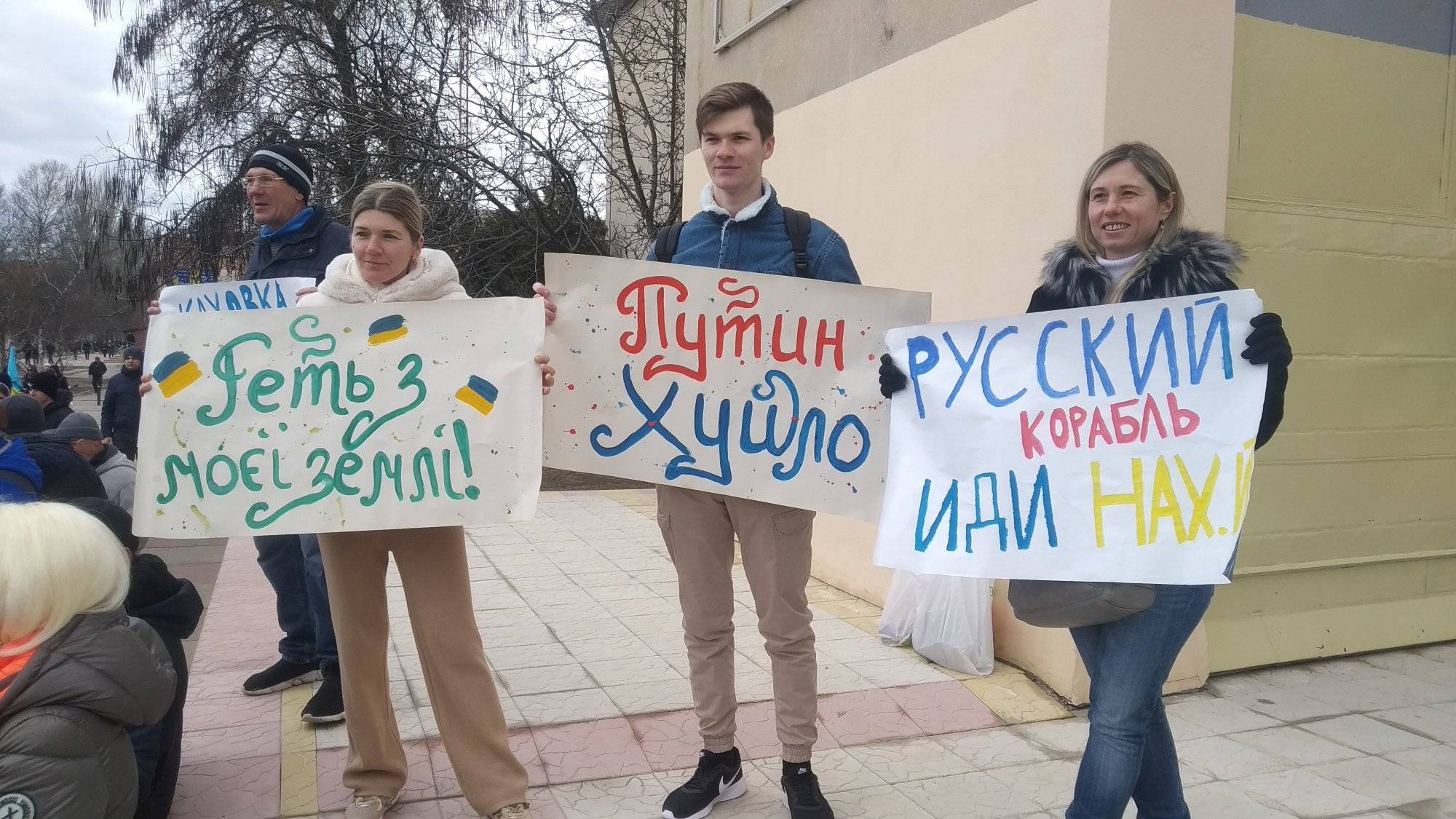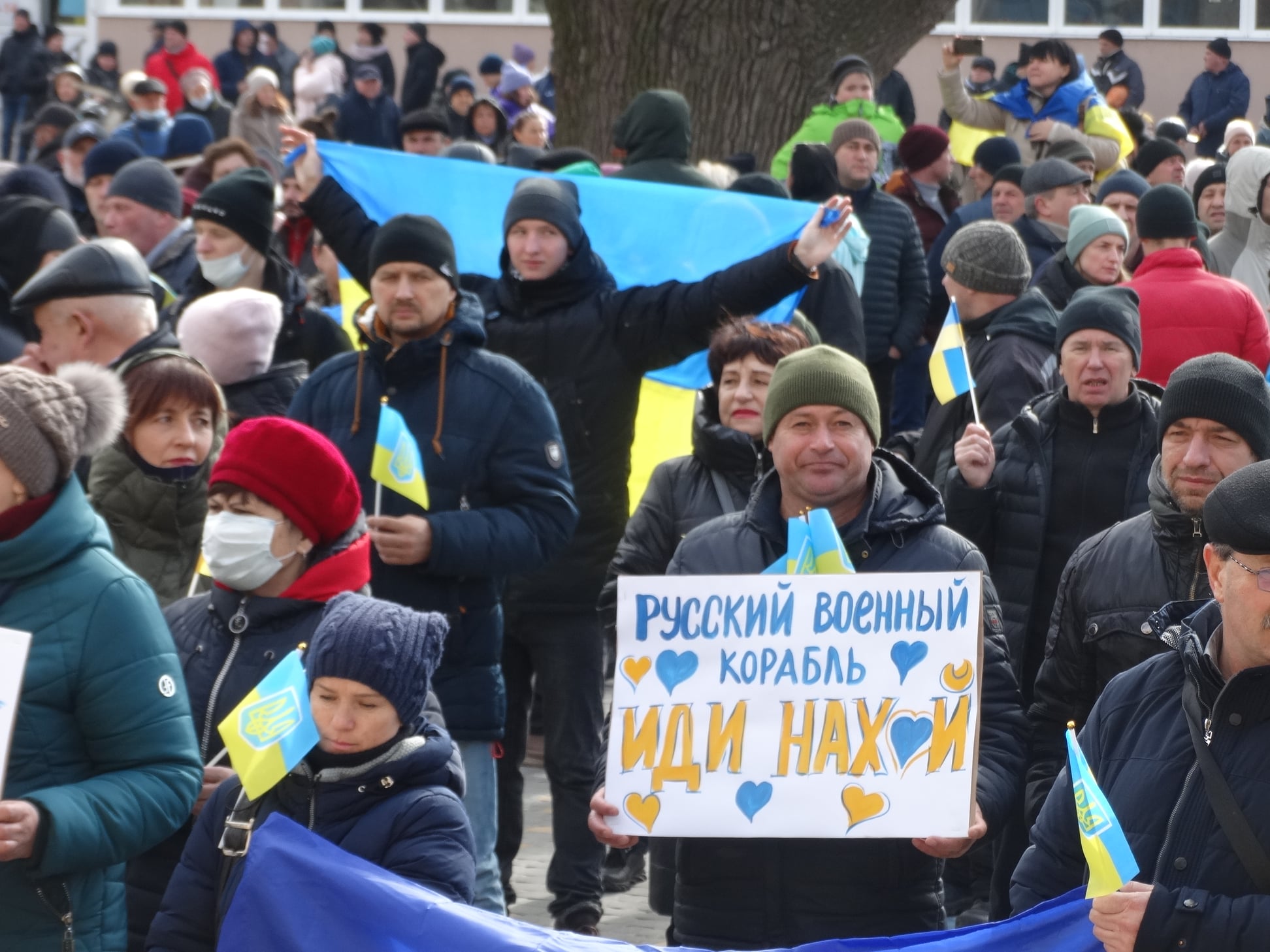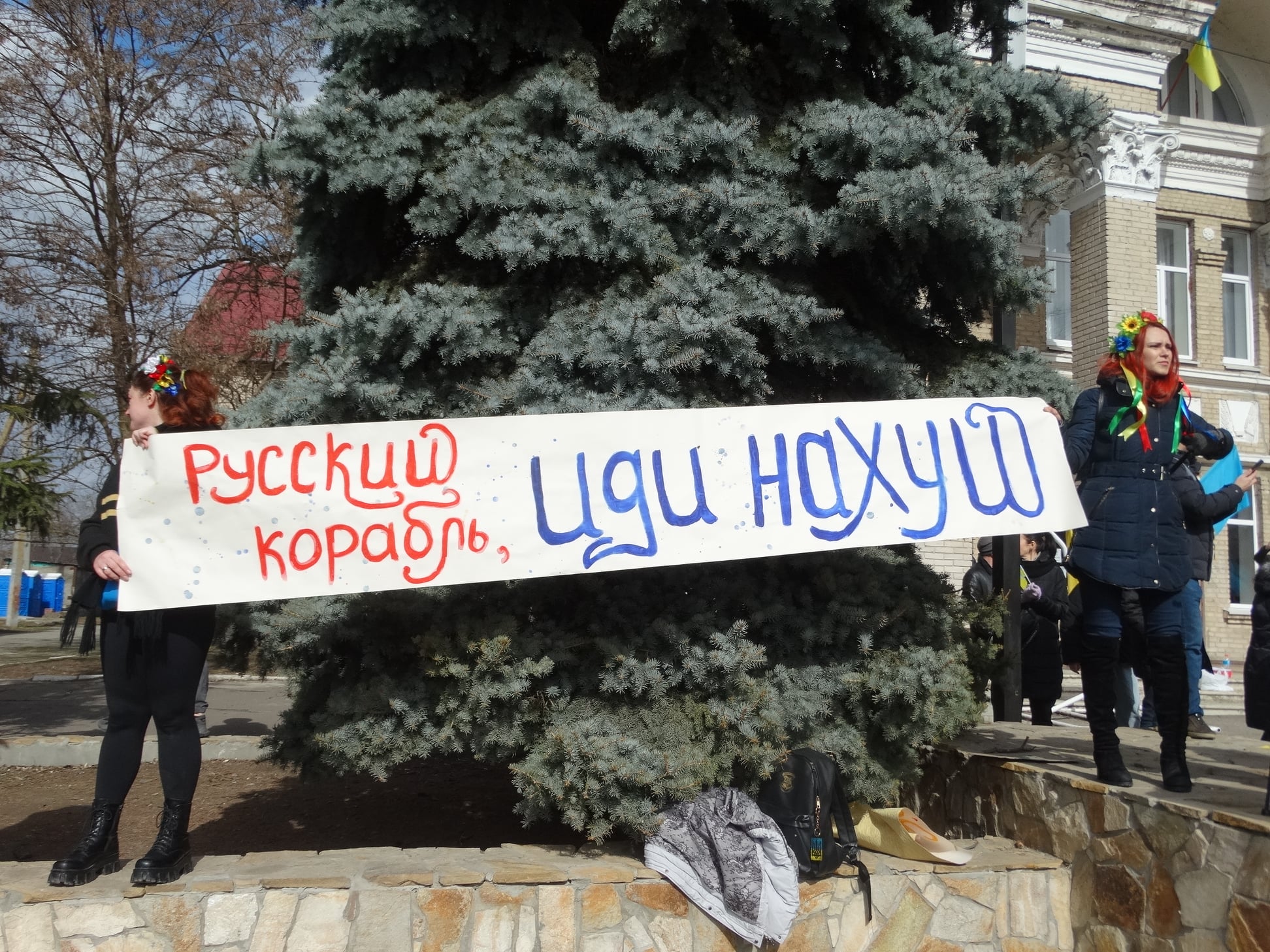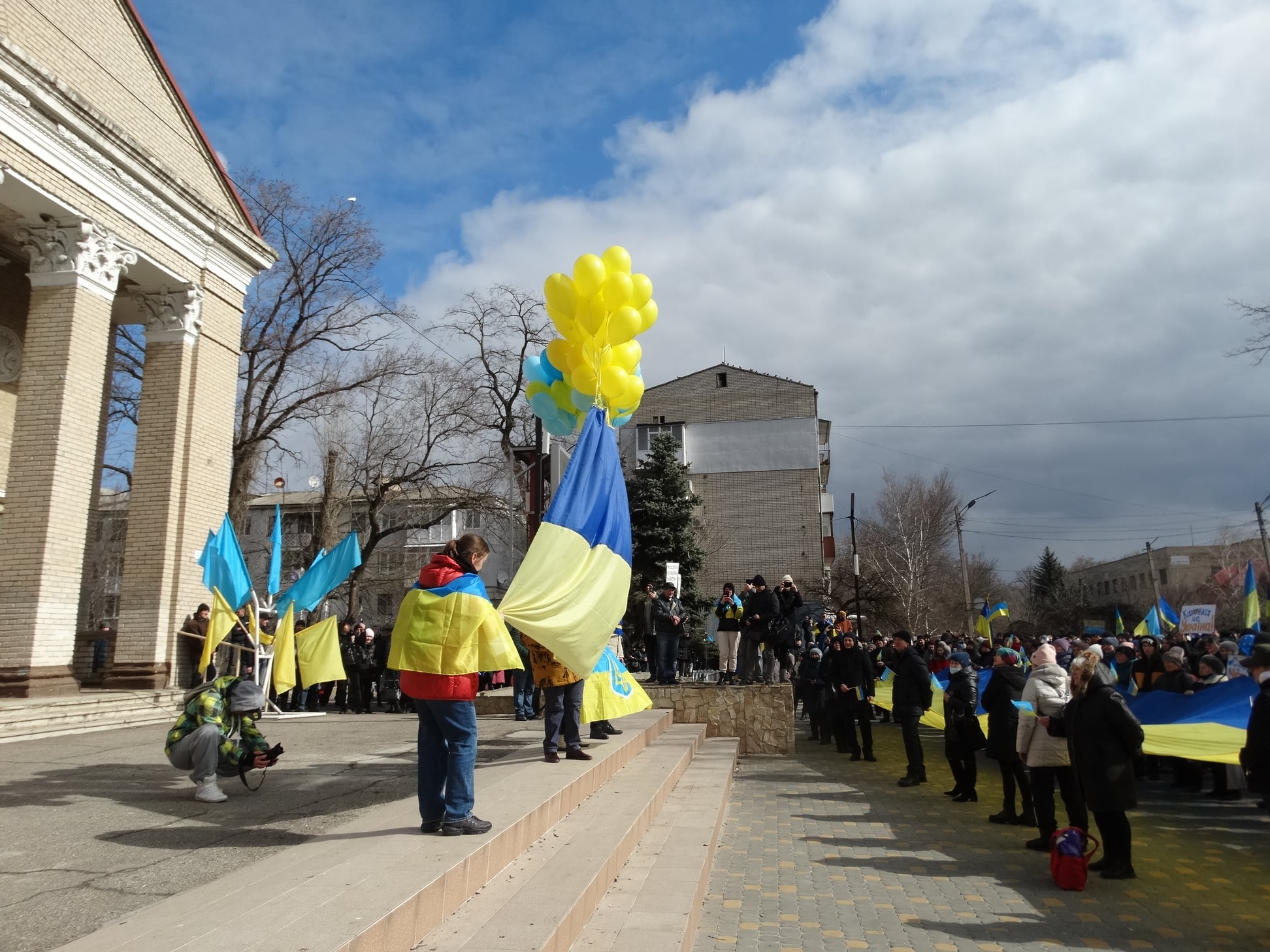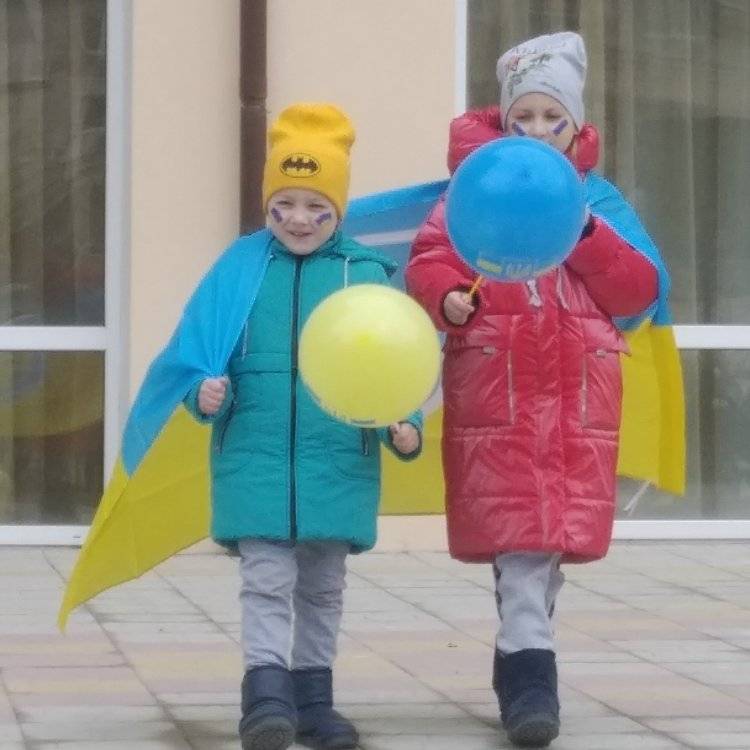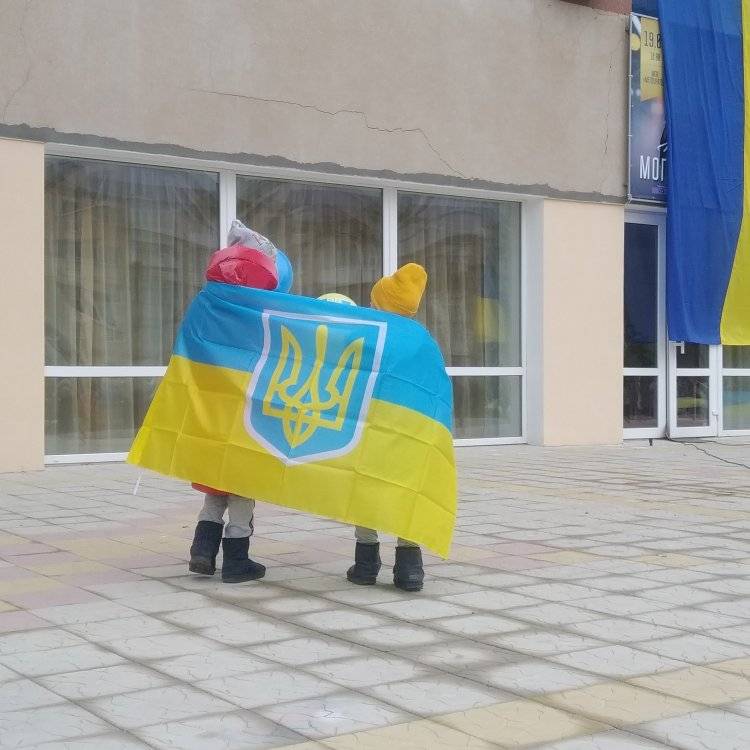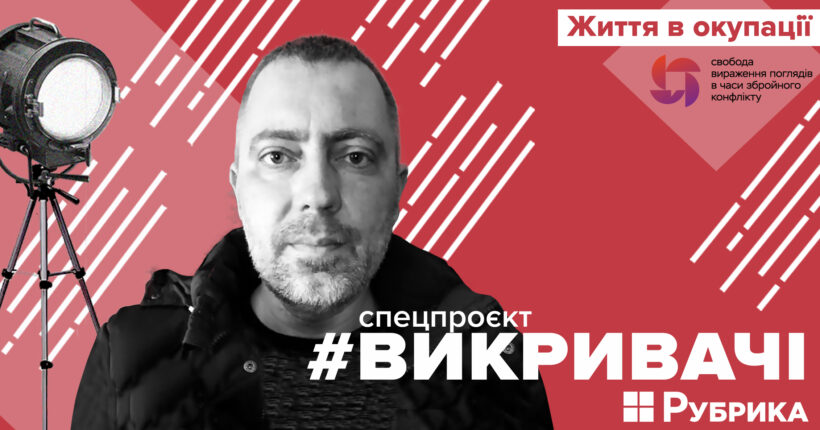
After russia's full-scale invasion of Ukraine, the russian occupiers didn't leave their intention to create new so-called "pseudo-republics" such as the Donetsk People's Republic (DPR) and Luhansk People's Republic (LPR). Kherson became a vital city to achieve this goal. It is the city where collaborators want to hold an unrecognized "pseudo-referendum" under the barrel of russian military's gun to fulfill their crucial purpose—to create an overland with Crimea and dominate Ukraine's South. However, the local population doesn't support this initiative at all.
From February 24, columns of russian equipment gradually began to seize the Kherson region's cities and critical infrastructure. They did it by executing civilians, including women and children. People who welcomed the enemy in the early war days were shocked by russian savagery and atrocities against Ukrainians. As a result, citizens protested daily against the russian occupation of Kherson, Nova Kakhovka, Novooleksiivka, Novotroitske, Henichesk, and other cities. A wave of protests swept the entire Kherson region. In response, the russian occupiers started abducting journalists, civil activists, anti-terrorist operation veterans, territorial defense members, and local government representatives. Taking an active pro-Ukrainian position in the Kherson region has become dangerous.
Oleh Baturyn, a journalist of the Novyi Den newspaper and the leader of the Eprostir public organization, abducted by the russian military on March 12 in Kakhovka, experienced this himself. Oleh's acquaintance, an activist of Nova Kakhovka's information front, Serhii Tsyhipa, called him and offered to meet near the bus station. Oleh went to the meeting, leaving his phone and documents at home. The man promised to return in 20 minutes, but it didn't happen. He spent eight days in captivity and returned home alive. He and his wife are now safe.
Oleh Baturyn, a journalist of the Novyi Den newspaper and the head of the Eprostir public organization, talks about eight days of russian captivity, pro-Ukrainian protests in the cities, the media's work the during the war, and the temporary occupation.
In russian captivity
— What has changed in the city after February 24 with the beginning of russian occupiers' full-scale invasion?
— I didn't leave my city Kakhovka after the beginning of the war. Only on the first day of the war did we go to the neighboring Nova Kakhovka to see what was happening. My wife and I drove there in our cars. It was terrifying. Later I realized how dangerous this trip had been. Jets flew over us, and a vast number of soldiers pushed on Tavrisk; at that time, they had already captured the Kakhovka Hydroelectric Station and were going to the main structure of the North Crimean Canal. It was a terrible and tragic blight. I remember when we returned home, I was shaking. At first, I couldn't understand why because I seemed to see the obvious—something I was preparing for somewhere in my mind. As it turned out, I was very depressed because several people we met when a column of military equipment pushed in front of us were happy to greet the russians and wave at them.
In the following days, the information appeared that shortly after we had made a trip to Nova Kakhovka, the russian military had shot dead a family with two young children. The next day russians shot someone else. They killed someone every day. They have already set up checkpoints near Nova Kakhovka, and leaving meant exposing yourself to a deadly risk.
— How did the russian military kidnap you?
— On March 8, an activist from Nova Kakhovka wrote on his Telegram channel that his name was Serhii Tsyhipa; he's from Nova Kakhovka, a veteran of the Anti-Terrorist Operation, a former security service representative, blogger, former journalist, and public activist. We were never friends with him; we always had a purely working relationship. At the same time, Tsyhipa said that he was in danger and knew that someone was following him. Serhii said he was staying calm and that if he needed someone, he would contact them himself.
He called me at noon on March 12. At that time, we discussed the first abductions in the Kherson region. There was official information that russians abducted 400 people in our area at that time. So, he called me at lunch and said he needed to meet me. It was a routine call. The only thing is that he did not contact me from his number but explained that that number was his. I live in Kakhovka, he lives in Nova Kakhovka. Tsyhipa offered to meet in the middle of the roadway. For my part, I said that I wouldn't do that, I wouldn't leave the city, and if he wanted to meet, he should come to Kakhovka. He called and said he could drive up in an hour and a half. We agreed to meet at the bus station at 17:00. I didn't take my phone or passport to this meeting. I warned my family what to do if I didn't return.
— You didn't take the phone and documents with you because you foresaw the abduction?
— Yes, I felt it. Before turning off the phone and leaving the house, I messaged my very close acquaintance from Kakhovka. And it happened that I didn't read her last message. She wrote: "You know, the orcs arrived at the bus station." Another thing, I didn't turn off the phone. I thought I did, but I pressed something wrong. At that time, we were protecting law and order from looters, and each of us had a radio transmitter app installed on our phones. Five minutes after I left, the orcs called me, my wife answered, they called to make sure I was out for the meeting, and they called from the same number from which Tsyhipa called me. My wife didn't know his voice, so she said yes when they asked if I had left. That number didn't answer anymore. But after that call, my app started working, and my law enforcement colleagues, through the app, said that there were orcs at the bus station. A few minutes later, another message: "Orcs have left the bus station. They are leaving the city." I was already there at that moment.
— What did the russians who kidnapped you say? Why did they do it? How did they react when they found out you were a journalist?
— They beat me. When russians brought me to the Nova Kakhovka City Hall and threw me on the floor was the only time they managed to force me to look at my questioners because everyone else was afraid. They closed my eyes and their faces, so they avoided explaining who and what they were. And here they made me look at them face to face. They asked who I was and where I worked.
I didn't feel that they had any center that made decisions, at least no prominent people. First, they brought me to local collaborationists in Nova Kakhovka, then to Kherson. Everything happened strangely. At least threats have stopped in Kherson. They no longer beat or threatened me. What I experienced and felt was psychological stress. Every day I heard other people being tortured. As a rule, they came to the cages of anti-terrorist operation veterans twice a day in a pre-trial detention center. The people were beaten, tortured, bullied, and then, as soon as the bullying stopped, the russians started going around the cages, looking at each person and asking, "Is everything okay?" If someone was silent, didn't hear the question, or snapped, saying how that could be normal, the russians came and beat them. I perceived, "Is everything okay?" "Yes, everything is fine" as sadism. In general, what I saw and felt shows one thing—they are sadists. Even this "everything is fine," which seems like such a trifle, I perceived as a form of psychological violence.
— How did you manage to escape from russian captivity?
— On the morning of March 20, I was taken out with several other prisoners. They said they would take me home. I don't know what influenced their decision. Before that, they took my DNA and electronic fingerprints, recorded all my passport data, and forced me to sign a document stating that I "undertake to cooperate with the federal authorities of the russian federation." I am confident that it was somewhat in the realm of sadism and psychological pressure than the real threat and collaboration with them.
What you need to know to get out of occupation and how "hybrid journalism" works
— Now, you and your wife are safe. How long did that take you to leave for the territory controlled by Ukraine?
— When I managed to leave for the Ukraine-controlled territory, I was among the pioneers of the new road exit from the region. I remember an incredible number of people turning to me on how to leave the occupation, communicate with russians at checkpoints, what to expect from them, and respond to them. The most complicated question is, "How to find the courage to leave the occupied city?"
— So, how did you find the courage to leave?
— I was immediately offered to leave after I was released. But I refused because I was emotionally exhausted and utterly unprepared for it. And I had very noticeable traces of beatings. Looking back, I understand that it was the right decision. When we decided to leave, the epic evacuation lasted four days.
"I still remember myself in Kakhovka; I always had a feeling of fear. Every moment I was afraid of what would happen next. I feared that I would look out the window and see whether they came for me or not. When I go to the doctor, to the store, will the russian military attack me? Will they catch me or not? It was a total feeling of fear."
— Tell us, what is the main thing and what should you always remember when leaving the occupation for the territory controlled by Ukraine?
— In my opinion, the most important and most challenging thing is to decide to leave. After leaving, I held a Zoom conference, where I shared my experience, and after that, many people from the areas with mobile service problems approached me. I spoke with each person and created a chat on Facebook messenger. I also consider this a hybrid form of journalism because I also provide people with information, just at this time in this form. It means informing people. Especially in the circumstances when this information helps people to survive. After all, what is journalism?
Therefore, the most important and most challenging thing is to find the courage to leave. You must make this choice. You must be determined to go. I still remember myself in Kakhovka; I always had a feeling of fear. Every moment I was afraid of what would happen next. I feared that I would look out the window and see whether they came for me or not. When I go to the doctor, to the store, will the russian military attack me? Will they catch me or not? It was a genuine feeling of fear. And I realized that there was nothing I could do about it. This fear will haunt me all the time I stay here. I comprehended that. But I also realized that I had a chance to leave, escape, get into the territory controlled by Ukraine, and I wouldn't feel fear. And that's why it was easier for me to choose whether I could adapt to the situation in Kakhovka or try to leave. And I decided to try to go. At that moment, I took anything that might happen on the road easier. We passed more than 30 russian checkpoints and came under fire. It wasn't easy. The road was challenging, but we also drove in a hefty downpour. We were able to leave Kherson on the third attempt. When people complain that they failed to leave the first time, I always say that I know people who were only able to leave the 6th time, and they take it as a miracle. Managing to escape for the first or second time means that you are fortunate.
The main routes for leaving the temporarily occupied Kherson region to the territory controlled by Ukraine were:
- During March, people left through Stanislav to Mykolaiv. The last time this road was open was on March 28.
- Then there was an option to leave through Snihurivka. People could pass through there from April 2 to 20.
- On April 23-24, more people went by the road through Kryvyi Rih.
- The only way left is to drive through the occupied Melitopol to Zaporizhzhia.
— What would you advise people who plan to leave the occupation relatively safely?
— There are no universal answers. Some people asked me how to communicate, what to take, where to put things in the car, how to behave, and what to expect from the occupiers. Listening to all this was sad on the one hand, but on the other hand, it's good that people are preparing and calculating all possible options and risks. When preparing for the trip, I also asked many questions and learned about other people's experiences. And the answers came based on these questions.
Rules of leaving occupated territory
- Everyone is interested if they need to take cash with them. Instead, I ask, "Do you need this money? Take what you need. You can withdraw your money anywhere you go."
You should bear in mind that russians may demand this money from you at checkpoints, that you primarily need this money, and, perhaps, your life will depend on it. You need to realize these things, and then it may be easier to communicate with these orcs at checkpoints. I know cases when they demanded money, and people offered canned food and cigarettes and said they needed the money they had for treatment. They tried to speak to russians on some human level. I advised taking things that people can offer to orcs: a pack of cigarettes, canned food, a bottle of cognac, vodka, a bag of chips, everything that is available to you and that you can find. If you can't bribe the russians with things, prepare an amount of money that you can give to them without much harm to yourself.
- First, you need to clean up the phone from the photos. russians are interested in pictures with military equipment and the movement of troops. There were cases when they found five-year-old images with some russian equipment, and people had problems. Take the phone with you, but clean it. If you need a laptop, take it. Anyway, when leaving, people take the essentials.
- Some men were worried about whether to shave before leaving and what to wear. Of course, you shouldn't wear things that the enemies can perceive as military or khaki; you should put on and wear neutral things.
Resistance against occupiers
"People needed come to the protests not only to declare their pro-Ukrainian position out loud, but also to get rid of fear."
— You say that when the russian occupiers entered the city, some citizens were happy about it. However, later, shocked by the enemy's brutality, people started going to pro-Ukrainian protests against the russian occupation. How has the people's attitude towards the so-called "liberators" changed?
— On February 24, we could still divide locals into half-pro-russian and fully pro-russian ones. But the thing is that the russians showed who they were literally from the first days. They shot a family of five on the first day, then started shooting people here and there. I believe people's attitudes changed, if not on the first day of the war, then precisely on the second or third day. In Kakhovka and Nova Kakhovka, there were no pro-russian residents; people decided. And even those people who still had some pro-russian nostalgic sentiments, most of them rejected it all. I would even bring the example of Kakhovka's "Gauleiter" Pavlo Filipchuk. His circle, which supported him all the time and was ready to carry out his first whims, had a significant part that took a solid and firm pro-Ukrainian position. If they had any nostalgic and emotional sentiments about russia, the first days of the war showed who was who. Some people admitted how shocked they were. They didn't wait for russia; they just had particular sentiments towards this country.
For instance, the family I know was not pro-Ukrainian and had sentiments about russia, but when they saw what russia was capable of, they were shocked. Therefore, among the participants of the big protests on March 6 and 7 in Kakhovka, many people hadn't previously shown any public activity or position. On the eve of these meetings, we had an incredible feeling of fear. And people, when they went outside, said that they came and they weren't so scared anymore. People even perceived these protests as an opportunity to calm down, be in a circle of like-minded people, and feel that we are not alone, that there are many of us. It was a powerful uplift. Therefore, it was important for people to come to these protests not only to declare their pro-Ukrainian position aloud but also to get rid of fear.
— Was there anybody coordinating these rallies, or was it self-organized?
— I know that there were no organizers in Kherson. There was also no specific organizer in Kakhovka. Many people gathered and offered to go to the protests; various people wanted it. During the second protest in Kakhovka, one speaker spontaneously said, "Let's get together every Sunday." And I remember that when it was already terrifying when people were kidnapped, apartments and houses were broken into, we discussed in our circle that it would be perilous to go out. At that time, many people didn't go to the street, but the protest still took place, and there were still many people. It was March 13, when I was already in captivity.
— The russians are going to hold a "pseudo-referendum" in Kherson. It hasn't taken place because of pro-Ukrainian protests. How did you manage to suppress this initiative?
— I think if the russians planned to hold a referendum, its results were ready a long time ago. People are more afraid that they will have to take part in a referendum. Many fear that they may be forced to attend the rally. Even though many active people left the Kherson region, pro-Ukrainian people who aren't afraid to speak out remain. So, they didn't allow this initiative to pass.
— When did journalists, public activists, and other active citizens start disappearing from Kherson and the region?
— The other day, there was an official statement that 41 people from the Kherson region are in russian captivity. But I'm sure that no one knows the exact number of people who russians took prisoner or how many will be in confinement today and tomorrow. We work with very approximate figures. For example, it has just become known that a man was abducted on April 19 in the village of Rozdolne, Kakhovka district. After my release from captivity, people approached me, hoping that I might have heard the names of their relatives, their husbands, and their sons.
What is the fate of these people… I don't know. Unfortunately, the number of torture chambers in the Kherson region has increased. While in the first half of March, the russians had several places where they held prisoners, now they hold and torture people in almost every former district center.
"To survive, a journalist must leave the temporarily occupied territory. Being there means putting yourself at great risk."
— Let's imagine that you are a Ukrainian journalist who stayed to live in the occupied Kherson region. What to do to survive?
Unfortunately, a journalist must leave the temporarily occupied territory to survive. Being there means putting yourself at significant risk. The russian occupiers' sadistic communication with residents of the temporarily occupied territories, the russian army's unpredictable nature, and their incomprehensible logic are all a fact. We have to leave. It is the only answer to how to survive.
Photo from Oleh Baturin's Facebook-page
Newsletter
Digest of the most interesting news: just about the main thing




